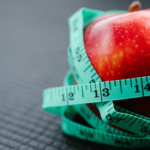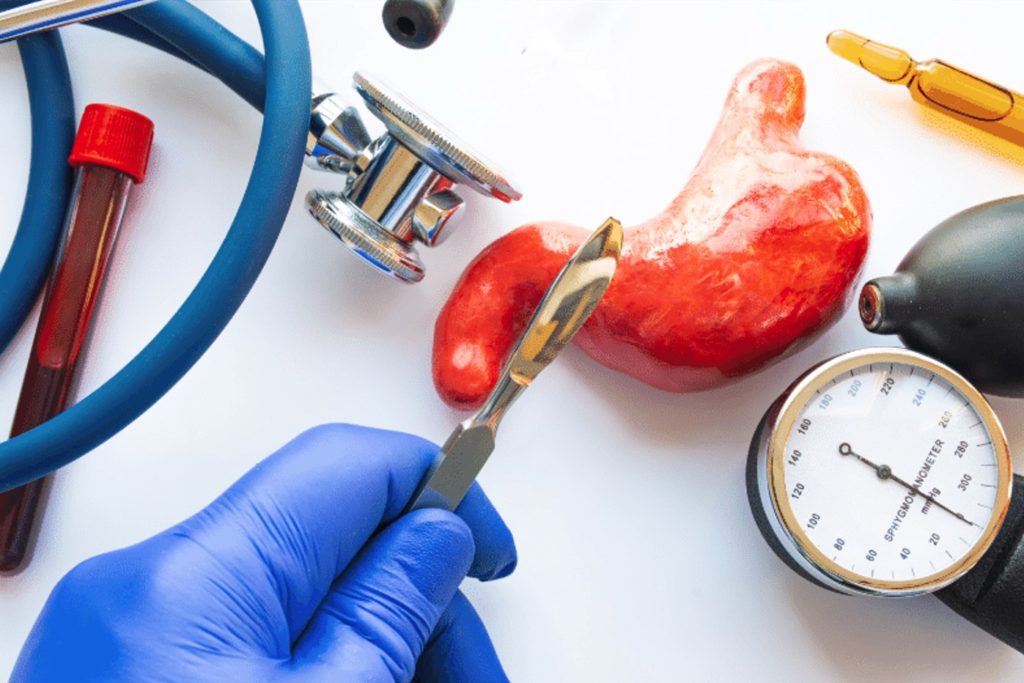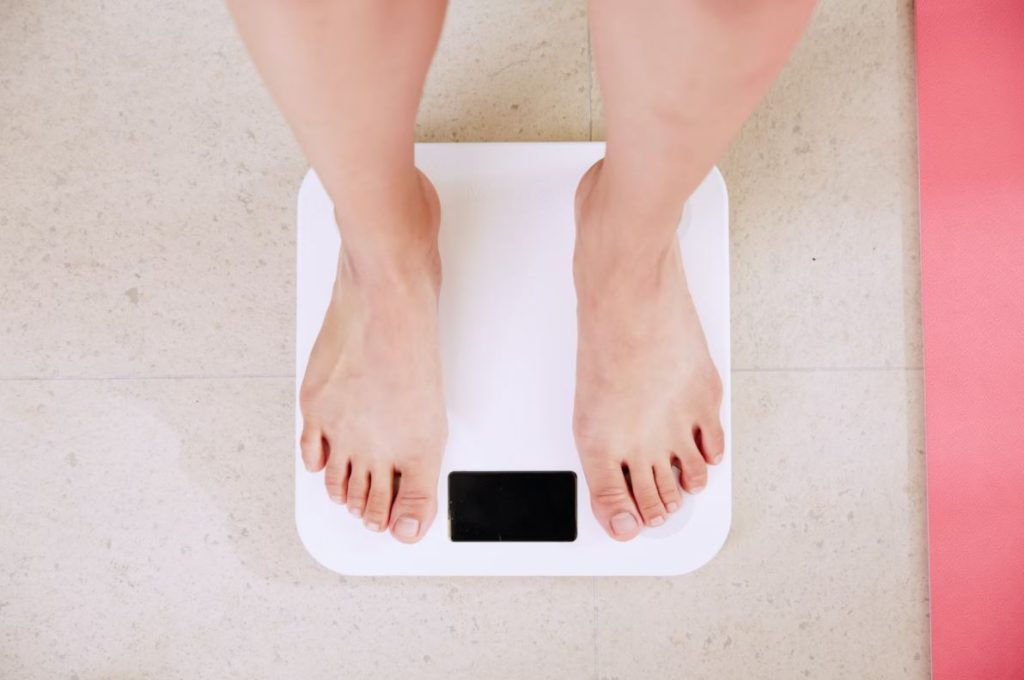Are you considering shedding some extra pounds but worried about how it may impact your energy levels? Weight loss can bring many benefits, such as pain reduction, improved self-esteem, and a healthier lifestyle.
However, the connection between weight loss and energy levels is more complex than you might expect. This blog post will dive deep into the relationship between weight loss and energy, examining positive and negative effects while debunking some common myths.
Key Takeaways
- Weight loss and energy levels are closely linked, as losing weight requires a caloric deficit that can impact hormones, metabolism, and overall nutrient intake.
- Sustainable weight loss is crucial for maintaining energy levels while shedding those extra pounds. Crash diets may lead to initial weight loss but decrease energy levels.
- Adequate hydration should also be maintained throughout the day by drinking enough water regularly, which can contribute to feeling more energetic during workouts.
- Prioritizing self-care through sustainable weight loss practices rather than focusing solely on fast results or crash diets will undoubtedly improve our physical health, mental clarity, and emotional stability that comes from being confident in our skin.
The Link Between Weight Loss And Energy
Weight loss and energy levels are closely linked, as losing weight requires a caloric deficit which can impact hormones, metabolism, and overall nutrient intake.
Understanding Energy Balance And Caloric Deficit
Energy balance refers to the equilibrium between the calories we consume through food and beverages and the calories our body burns for various activities, such as daily movements, exercise, or maintaining essential bodily functions.
In simple terms, when you are in a calorie deficit state, your body must look for an alternate energy source to keep up with its requirements. This usually leads to tapping into stored fat reserves for fuel.
However, it’s essential not to take extreme measures that result in an unhealthy caloric deficit because doing so might affect your energy levels negatively instead of improving them.
Establishing an optimal calorie deficit while losing weight consistently and safely requires a balanced approach that includes mindful eating habits (like consuming nutrient-dense foods) and regular physical activity tailored to your current fitness levels and goals.
Remember that every individual responds differently based on factors such as age, genetics, and lifestyle choices, among others- thus, no one-size-fits-all solution exists when it comes down- adjusting energy intake accordingly over time will allow progress tracking ensuring the best possible outcomes toward healthier lifestyles overall, empowering individuals feeling confident about their actions knowing they made deliberate efforts towards enhancing their well-being both physically mentally allowing sustainable success ultimately improved quality life!
Hormonal Changes And Metabolism
During weight loss, hormonal changes occur that can affect your metabolism and energy levels. As you lose weight, your body may produce less of the hormone leptin, which tells your brain you are full.
This can lead to increased hunger and a slower metabolism.
On the other hand, losing weight can also improve insulin sensitivity and balance hormones like estrogen and testosterone. These changes can result in a more efficient metabolism and higher energy levels overall.
Nutrient Intake And Energy Levels
As someone trying to lose weight, it’s important to understand the link between nutrient intake and energy levels. A balanced diet rich in whole grains, fruits and vegetables, lean protein, and healthy fats can help give you the sustained energy you need throughout the day.
Research has shown that certain foods such as nuts and seeds, salmon and tuna fish packed with omega 3 fatty acids, bananas, or spinach containing magnesium can play a crucial role in promoting physical activity for extended periods! Conversely, consuming too few calories or restricting certain food groups may leave you feeling sluggish or tired.
The Impact Of Rapid Weight Loss On Energy Levels
Rapid weight loss can negatively impact energy levels, causing fatigue and mood swings.
Potential Issues With Crash Diets
Crash diets, also known as fad diets, are popular among dieters who want to lose weight quickly. However, these types of diets can lead to potential issues such as:
- Nutrient deficiencies: Crash diets often restrict certain food groups and may not provide enough nutrients for the body leading to deficiencies.
- Slowed metabolism: Severely restricting calories can slow the metabolism making it harder to lose weight over time.
- Loss of muscle mass: Rapid weight loss can result in significant muscle loss, affecting overall body composition and negatively impacting energy levels.
- Increased risk of binge eating: Restrictive diets can cause intense hunger leading to binge eating once the diet is stopped.
- Fatigue and weakness: Crash diets deprive the body of essential nutrients, leaving individuals tired and weak.
It’s important to remember that sustainable weight loss should not involve extreme calorie restriction or elimination of entire food groups. Consult with a healthcare professional before starting any drastic diet plan.
Importance Of Sustainable Weight Loss
Sustainable weight loss is crucial for maintaining energy levels while shedding those extra pounds. Crash diets may lead to initial weight loss, but they are hard to maintain in the long run and can result in decreased energy levels.
When we make small changes over time and stick to them consistently, we create new healthy habits that become part of our routine. This approach leads to better health outcomes and helps us avoid falling back into old unhealthy patterns.
Sustainable weight loss should be a gradual process prioritizing overall well-being rather than quick fixes or fad diets. By choosing nutritious foods such as whole grains, fruits and vegetables, lean proteins, and healthy fats, we can fuel our bodies with the energy needed for daily activities.
Overall, prioritizing self-care through sustainable weight loss practices rather than focusing solely on fast results or crash diets will undoubtedly improve our physical health, mental clarity, and emotional stability that comes from being confident in our skin.

Tips To Maintain Energy Levels While Losing Weight
To maintain energy levels while losing weight, eating a balanced diet with adequate protein, staying hydrated, exercising regularly, getting sufficient sleep and managing stress levels are important.
Eating A Balanced Diet With Adequate Protein
As someone trying to lose weight, you might be inclined to reduce your food intake drastically. However, eating a balanced diet with adequate protein is essential if you want to maintain your energy levels during this process.
Lean protein is essential for muscle growth and repair, which can help increase your metabolism and improve your body composition.
It’s important not to neglect calorie intake to lose weight, as uncontrolled caloric deficits can lead to fatigue or severe health complications.
Adequate hydration should also be maintained throughout the day by drinking enough water regularly. Eating small meals often (say 4-6 times a day) that include carbohydrates and some healthy fats such as avocado and olive oil will keep one energized without causing spikes in blood sugar levels.
Staying Hydrated
Staying hydrated is a crucial aspect of any weight loss journey. Drinking enough water helps to flush out toxins and regulate body temperature, which can contribute to feeling more energetic during workouts.
Studies have shown that drinking water before exercise can improve overall performance by reducing fatigue. Furthermore, staying hydrated can help reduce cravings for sugary drinks that are high in calories and low in nutrients.
Aiming for at least eight glasses of water each day, or more if you’re exercising heavily or live in a hot climate is important. If plain water isn’t your thing, try adding fresh fruit like lemon or cucumber to give it some flavour without adding extra calories.
Regular Exercise
Regular exercise is an essential component of any weight loss plan. It increases the number of calories your body uses for energy and has numerous other health benefits, including improved cardiovascular health and mental clarity.
To make exercise a habit, start by finding something you enjoy doing. This could be anything from walking to swimming or even dancing.
Remember that there are many different ways to incorporate physical activity into your day-to-day life beyond structured exercise sessions, such as taking regular breaks at work to stretch or doing household chores like gardening and cleaning.
Getting Sufficient Sleep
It’s no secret that getting enough sleep is crucial to maintaining good health. It’s especially vital when you’re trying to lose weight, as lack of sleep can negatively impact your metabolism and energy levels.
To ensure you’re getting sufficient rest while losing weight, aim for 7-9 hours of sleep each night. Develop a consistent bedtime routine by avoiding caffeine or alcohol before bed, and limit screen time before going to sleep.
Making sure you get adequate rest will not only benefit your weight loss journey but also have positive effects on your overall health and well-being.
Managing Stress Levels
As someone who’s trying to lose weight, managing stress levels is crucial. Stress can cause weight gain and make it harder to lose weight by increasing cortisol production, which signals the body to store fat in the abdominal area.
It’s also important to prioritize self-care and take time for yourself during a weight loss journey. This could mean taking a bubble bath, reading a book or spending time with loved ones.

Balancing Weight Loss And Energy Levels
To balance weight loss and energy levels, prioritize a healthy lifestyle through self-care habits like regular exercise, sufficient sleep, and managing stress levels. Consult with a healthcare professional for personalized advice to celebrate progress over rapid weight loss.
Prioritizing Self-Care And A Healthy Lifestyle
As someone looking to lose weight, prioritizing self-care and a healthy lifestyle can be the key to success. This means taking care of yourself both physically and mentally and making sure that your weight loss goals align with your overall well-being.
One way to prioritize self-care is by making time for regular exercise. Exercise not only helps you burn calories but also boosts your mood and energy levels. Additionally, it’s important to eat a balanced diet that includes whole grains, fruits and vegetables, lean protein, and healthy fats.
Another aspect of self-care is getting sufficient sleep and managing stress levels. Sleep plays a critical role in regulating hormones that control hunger and metabolism, while stress can derail progress towards weight loss goals.
Celebrating Progress Over Rapid Weight Loss
As a dieter, it’s important to remember that weight loss is not a race. Celebrating progress, even slow and steady, is crucial for maintaining motivation and a positive mindset.
Rapid weight loss may seem tempting, but it often leads to regaining the lost weight just as quickly. Instead of fixating on the number on the scale, focus on healthy lifestyle habits like regular exercise and healthy food consumption.
It’s also important to recognize that losing weight is not just about physical changes – there are many psychological effects. Improving self-esteem and reducing pain are potential weight loss benefits, but these don’t happen overnight.
Celebrating small victories like fitting into an old pair of jeans or getting through a workout without feeling fatigued will make you more likely to maintain your healthy habits over time.
Conclusion
In conclusion, weight loss can have a significant impact on energy levels. Understanding the link between calorie intake and energy expenditure is crucial to maintaining a healthy lifestyle while losing weight.
Rapid weight loss through crash diets can be harmful. It should be avoided in favour of sustainable habits such as eating a balanced diet with adequate protein, staying hydrated, regular exercise, getting sufficient sleep, and managing stress.
Prioritizing self-care is vital to achieving long-term success in weight loss goals while maintaining high energy levels and overall health. Always consult your healthcare professional for personalized advice on the best way to lose weight without sacrificing energy or well-being.
FAQs:
-
- Will I feel more energetic if I lose weight?
You may feel more energetic after losing weight because your body will require less effort to move around and perform necessary tasks. Additionally, carrying extra weight can strain your body and lead to fatigue.
- Can weight loss impact my energy levels negatively?
While it is rare for weight loss alone to cause significant decreases in energy levels, dramatic changes in diet or exercise routines may temporarily lead to low energy during the adjustment period.
- What should I do if I experience low energy while trying to lose weight?
If you are experiencing decreased energy while losing weight, try incorporating nutrient-rich foods into your diet, such as leafy greens or lean proteins. Also, ensure you get enough sleep each night and engage in regular physical activity that promotes overall health.
- How much should I expect my energy levels to increase with successful weight loss?
The amount of increased energy you experience will depend on several factors, such as how much weight you have lost, your starting point of fitness level and age. Lastly, you could see an improvement in your mood and self-esteem which can ultimately boost overall well-being and positively affect your daily life activities.














